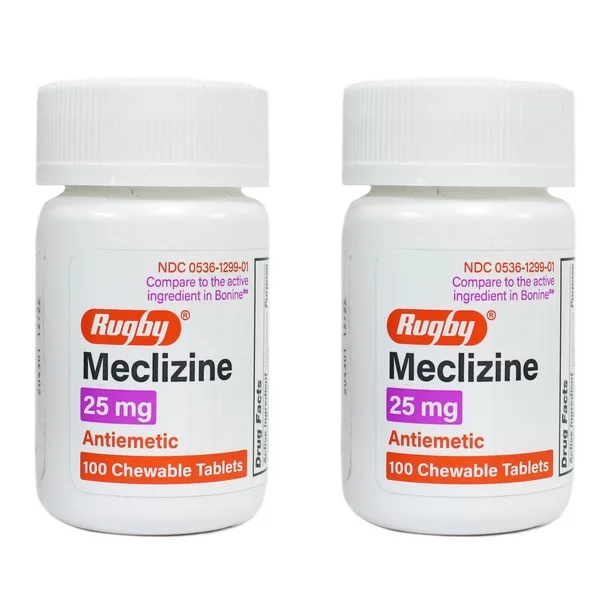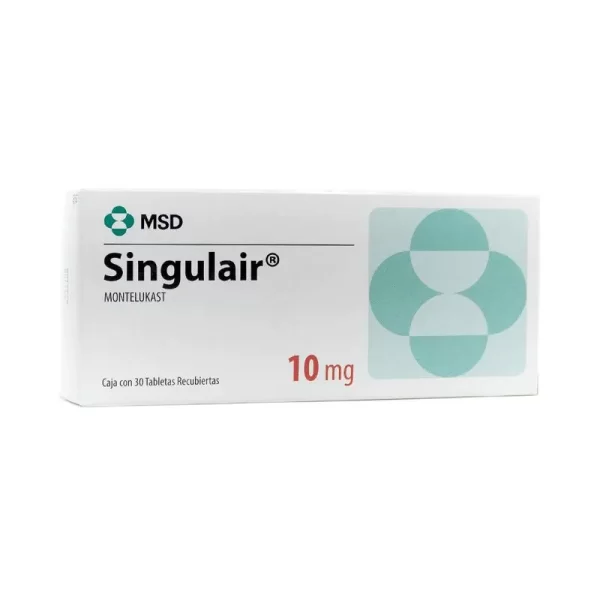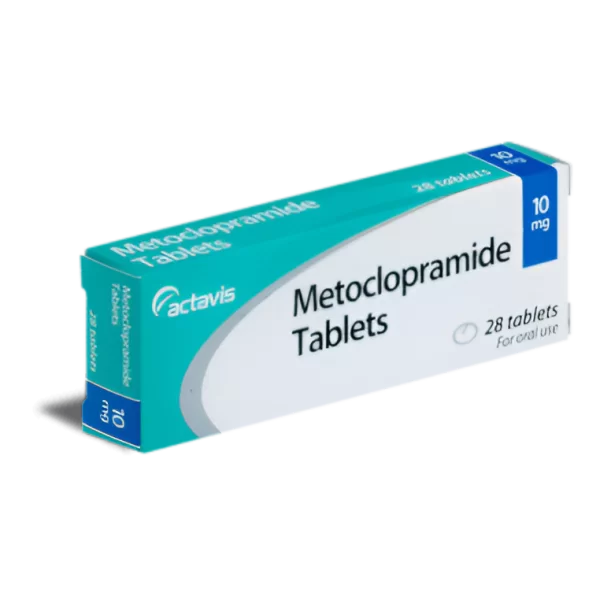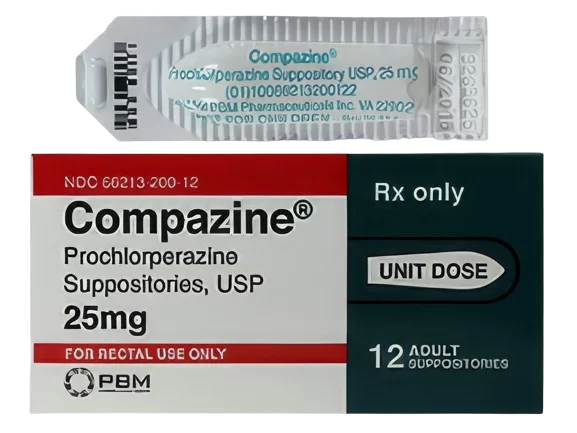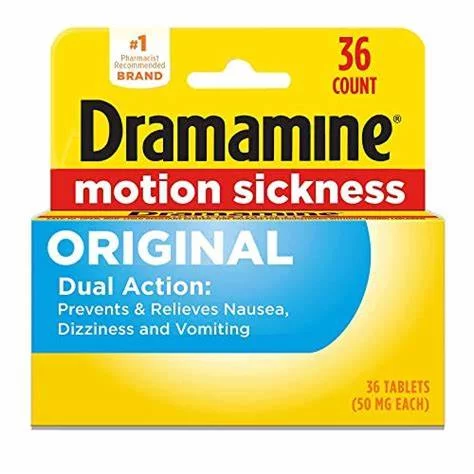
Meclizine
Meclizine - 25mg
Overview of Meclizine
General Introduction to Meclizine
- Meclizine, also known by its brand names such as Antivert and Bonine, is an antihistamine commonly used to prevent and treat nausea, vomiting, and dizziness caused by motion sickness and vertigo. It is available in tablet and chewable forms.
Key Benefits and Unique Properties of Meclizine
- Effective Relief from Motion Sickness: Meclizine is highly effective in preventing and treating symptoms of motion sickness, including nausea, vomiting, and dizziness.
- Management of Vertigo: It is also used to manage vertigo associated with vestibular system disorders, helping to stabilize symptoms and improve patient comfort.
- Non-Sedating at Low Doses: Unlike other antihistamines, meclizine tends to cause less drowsiness at lower doses, making it a preferable choice for those needing symptom relief without sedation.
- Long Duration of Action: Meclizine provides long-lasting relief, typically effective for up to 24 hours with a single dose.
- Versatile Formulations: Available in both tablet and chewable forms, offering flexibility in administration according to patient preference and needs.
- Minimal Side Effects: Generally well-tolerated with minimal side effects when used as directed, enhancing patient compliance and comfort.
Effectiveness of Meclizine
- Clinical studies have demonstrated that meclizine effectively reduces symptoms of motion sickness and vertigo. Patients typically experience significant symptom relief shortly after administration, with effects lasting up to 24 hours. It is comparable to other antihistamines in efficacy but often preferred for its lower sedative properties.
Safety and Tolerability of Meclizine
- Meclizine is generally well-tolerated. Common side effects include mild drowsiness, dry mouth, and fatigue. Serious side effects are rare but can include allergic reactions such as rash, itching, swelling, severe dizziness, and trouble breathing. Proper dosing and adherence to recommended guidelines minimize the risk of adverse effects.
Indications for Use of Meclizine
Diseases and Conditions Treated by Meclizine
- Meclizine is indicated for the prevention and treatment of nausea, vomiting, and dizziness associated with motion sickness. It is also used for the management of vertigo related to vestibular system disorders.
Primary Symptoms and Indications for Meclizine
- Motion Sickness: Meclizine effectively prevents and treats symptoms such as nausea, vomiting, and dizziness caused by motion sickness.
- Vertigo: Provides relief from vertigo symptoms, including dizziness and balance disorders, often associated with vestibular system dysfunction.
Dosage and Administration of Meclizine
Recommended Dosage of Meclizine
- For adults and children over 12 years old, the typical dose for motion sickness is 25-50 mg taken one hour before travel and then every 24 hours as needed. For vertigo, the dose may range from 25-100 mg per day in divided doses, depending on the severity of symptoms and patient response.
Timing and Frequency of Meclizine Administration
- Motion Sickness: Take one hour before travel and then once daily as needed.
- Vertigo: Administer in divided doses throughout the day, based on symptom severity and patient response.
Additional Recommendations for Meclizine Use
- Proper Use: Follow the dosing instructions provided by a healthcare professional. Chewable tablets should be thoroughly chewed before swallowing.
- Missed Dose: If a dose is missed, take it as soon as remembered unless it is almost time for the next dose. Do not double the dose to make up for the missed one.
Mechanism of Action of Meclizine
Description of Meclizine Mechanism
- Meclizine works by blocking histamine receptors in the brain, specifically the H1 receptors, which are involved in causing nausea, vomiting, and dizziness. By inhibiting these receptors, meclizine helps to control symptoms associated with motion sickness and vertigo.
Biochemical Processes Involving Meclizine
- Histamine Blockade: Meclizine blocks the action of histamine on H1 receptors in the vestibular system, reducing the transmission of signals that cause nausea and dizziness.
- Central Nervous System Effects: It has a depressant effect on the central nervous system, which helps to alleviate symptoms of vertigo and balance disorders.
Physiological Effects of Meclizine
- Symptom Relief: Reduces nausea, vomiting, and dizziness by blocking histamine receptors and stabilizing the vestibular system.
- Improved Balance: Helps improve balance and reduce the sensation of spinning or dizziness in patients with vertigo.
Composition of Meclizine
Active Ingredients in Meclizine
- The active ingredient in Meclizine is meclizine hydrochloride, an antihistamine that provides antiemetic and antivertigo effects.
Inactive Ingredients in Meclizine
- Inactive ingredients may include lactose, magnesium stearate, microcrystalline cellulose, and corn starch. These ingredients help stabilize the formulation and ensure proper delivery of the medication.
Side Effects of Meclizine
General Introduction
- Understanding potential side effects helps ensure the safe use of Meclizine. Patients should be aware of common and serious side effects to monitor their health effectively while on the medication.
Possible Side Effects of Meclizine
- Common Side Effects: Drowsiness, dry mouth, and fatigue. These side effects are usually mild and transient.
- Less Common Side Effects: Some patients may experience headache, blurred vision, or constipation.
- Serious Side Effects: Rare but serious side effects include allergic reactions such as rash, itching, swelling, severe dizziness, and trouble breathing. Immediate medical attention is required if any serious side effects occur.
Frequency and Severity of Meclizine Side Effects
- Common side effects are generally mild and do not significantly interfere with daily activities. Severe side effects are rare but can be serious, necessitating immediate medical intervention. Regular follow-ups and patient education on correct usage can minimize risks.
Prevention of Side Effects of Meclizine
General Introduction
- Preventing side effects is key to maximizing the therapeutic benefits of Meclizine. By following preventive measures, patients can reduce the likelihood of experiencing adverse reactions.
Tips for Preventing Meclizine Side Effects
- Proper Technique: Use Meclizine as directed, following the instructions for proper administration.
- Regular Monitoring: Regular check-ups with healthcare providers can help detect and manage potential side effects early.
- Healthy Practices: Maintain hydration and follow dietary recommendations to enhance the effectiveness of Meclizine.
- Consult Healthcare Providers: Inform your healthcare provider about any other medications or supplements to avoid potential interactions.
Contraindications for Meclizine
General Introduction
- Understanding contraindications ensures the safe use of Meclizine. Certain conditions and diseases may preclude the use of this medication.
Conditions and Diseases Contraindicating Meclizine
- Hypersensitivity: Patients with a known hypersensitivity to meclizine or any of its components should not use this medication. Allergic reactions can include symptoms such as rash, itching, swelling, and difficulty breathing.
- Pregnancy and Breastfeeding: Meclizine should be used with caution during pregnancy and breastfeeding, as the safety has not been fully established. It should only be used if the potential benefits justify the potential risks.
Warnings/Precautions for Meclizine
General Introduction
- Following precautions is essential to ensure the safe and effective use of Meclizine. Patients should be informed about potential risks and how to mitigate them.
Important Warnings for Meclizine
- Sedation: Meclizine can cause drowsiness. Patients should avoid driving or operating heavy machinery until they know how the medication affects them.
- Alcohol and CNS Depressants: Avoid using alcohol or other central nervous system depressants while taking Meclizine, as these can increase drowsiness and other side effects.
Precautions for Meclizine Use
- Regular Monitoring: Regular check-ups with healthcare providers are essential to monitor for potential side effects and ensure effective treatment.
- Patient Education: Patients should be educated on the proper use of Meclizine, recognizing signs of serious side effects, and when to seek medical help.
Missed Dose of Meclizine
General Introduction
- Proper management of missed doses helps maintain effective symptom control. Patients should be aware of how to handle missed doses to avoid disruptions in their treatment regimen.
What to Do If a Dose of Meclizine is Missed
- If a dose is missed, take it as soon as remembered unless it is almost time for the next dose. In such cases, the missed dose should be skipped, and the patient should continue with the regular dosing schedule. It is important not to double the dose to make up for the missed one.
Tips for Adherence to Meclizine
- Reminders: Use alarms or medication organizers to help remember to take Meclizine as prescribed.
- Routine: Take the medication at the same time each day to develop a routine and reduce the chances of missing a dose.
Drug Interaction with Meclizine
General Introduction
- Understanding potential drug interactions helps in avoiding adverse effects and ensuring the effectiveness of Meclizine. Patients should be aware of common interactions and how to manage them.
Examples of Interactions with Meclizine
- CNS Depressants: Concurrent use with other CNS depressants, such as alcohol, benzodiazepines, and sedatives, can increase drowsiness and CNS depression.
- Anticholinergic Drugs: Combining Meclizine with other anticholinergic drugs can increase the risk of side effects such as dry mouth, constipation, and blurred vision.
How to Avoid Negative Interactions with Meclizine
- Medication Review: Regularly review all medications with healthcare providers to identify and manage potential interactions before they cause adverse effects.
- Inform Healthcare Providers: Always inform healthcare providers of all medications being taken, including over-the-counter drugs and supplements, to ensure safe and effective use of Meclizine.
Overdose of Meclizine
Symptoms of Meclizine Overdose
- Overdosing on Meclizine can lead to symptoms such as extreme drowsiness, confusion, blurred vision, and severe dry mouth. In severe cases, overdose can cause difficulty breathing and loss of consciousness.
Actions to Take in Case of Meclizine Overdose
- Immediate Measures: Seek emergency medical attention or call a poison control center immediately if an overdose is suspected. It is important to provide healthcare professionals with information about the amount of medication taken and the time of ingestion.
- First Aid: While waiting for medical help, provide supportive care to the affected individual. This includes maintaining an open airway, monitoring vital signs, and keeping the person comfortable. Do not induce vomiting unless instructed by a healthcare professional.
Pharmacokinetics of Meclizine
Absorption of Meclizine
- Meclizine is well-absorbed from the gastrointestinal tract, with peak plasma concentrations typically occurring within 1 to 3 hours after administration.
Distribution of Meclizine
- Once absorbed, Meclizine is widely distributed throughout the body. It crosses the blood-brain barrier, which is essential for its central nervous system effects.
Metabolism of Meclizine
- Meclizine undergoes hepatic metabolism. The specific metabolic pathways are not fully understood, but it is known to be metabolized in the liver.
Elimination of Meclizine
- The metabolites of Meclizine are excreted primarily via the urine. The elimination half-life of Meclizine ranges from 6 to 8 hours, allowing for once or twice-daily dosing depending on the indication.
Dosage Forms of Meclizine
Available Dosage Forms of Meclizine
- Meclizine is available in tablet and chewable tablet forms. Common dosages include 12.5 mg, 25 mg, and 50 mg, allowing for flexible dosing according to patient needs and preferences.
Advantages of Meclizine Dosage Forms
- Tablet: Provides precise dosing and is easy to swallow.
- Chewable Tablet: Offers a convenient option for those who have difficulty swallowing pills and provides quick onset of action.
Pregnancy and Breastfeeding with Meclizine
Safety of Meclizine Use During Pregnancy and Breastfeeding
- The safety of Meclizine during pregnancy and breastfeeding has not been fully established. Animal studies have shown some adverse effects, but there are no adequate and well-controlled studies in pregnant women. Meclizine should be used during pregnancy only if the potential benefits justify the potential risks to the fetus. Meclizine is excreted in human milk, and due to the potential for serious adverse reactions in nursing infants, a decision should be made whether to discontinue nursing or discontinue the drug, taking into account the importance of the drug to the mother.
Recommendations for Pregnant and Nursing Mothers Using Meclizine
- Pregnancy: Use Meclizine with caution during pregnancy. Pregnant women should consult their healthcare provider before starting or continuing this medication. Comprehensive risk-benefit analysis is essential to ensure the safety of both mother and child.
- Breastfeeding: Nursing mothers should consult their healthcare provider to weigh the benefits and risks of using Meclizine while breastfeeding. Regular monitoring of the infant for any adverse effects is recommended if the mother continues to use the medication.
- Consultation: Pregnant and nursing mothers should have regular consultations with their healthcare provider to monitor their condition and the health of their baby. Adjustments to the treatment plan may be necessary based on the mother’s and baby’s health status.
Storage Conditions for Meclizine
Recommended Storage Conditions for Meclizine
- Meclizine should be stored at room temperature between 20°C to 25°C (68°F to 77°F). The medication should be kept in its original container, tightly closed, and out of reach of children. Protecting the medication from light and moisture helps maintain its stability and effectiveness.
Temperature and Other Conditions for Meclizine Storage
- Temperature: Avoid storing Meclizine in extreme temperatures (above 30°C or below 15°C). High temperatures can degrade the active ingredient, while low temperatures can affect the tablet's integrity.
- Moisture Protection: Keep the medication away from high humidity environments such as bathrooms. Exposure to moisture can cause the tablets to become less effective.
- Shelf Life: Check the expiration date on the packaging and do not use the medication past this date. Proper adherence to storage guidelines ensures the medication remains effective throughout its shelf life. If the medication shows any signs of deterioration, such as changes in color or consistency, it should be discarded.
Clinical Trials and Efficacy of Meclizine
Overview of Meclizine Clinical Trials
- Meclizine has been evaluated in numerous clinical trials to assess its efficacy and safety in treating motion sickness and vertigo. These studies typically involve large patient populations with various demographics and conditions. The trials are designed to measure improvements in symptoms such as nausea, vomiting, and dizziness.
Key Findings and Conclusions of Meclizine Studies
- Efficacy: Clinical trials consistently show that Meclizine significantly reduces symptoms of motion sickness and vertigo. These findings highlight the medication’s effectiveness in improving patients’ quality of life and disease management.
- Safety: The safety profile of Meclizine is well-documented, with a low incidence of severe side effects when used as directed. Long-term studies confirm its tolerability and continued effectiveness over extended periods. Patients generally experience minimal side effects, making it a reliable and safe treatment option for managing motion sickness and vertigo.
- Comparison: Meclizine’s efficacy is comparable to other antihistamines but with a favorable side effect profile. It provides an effective alternative or adjunctive therapy for patients who need comprehensive management of motion sickness and vertigo.
Conclusion
Overview of Key Aspects
- Meclizine is an effective and well-tolerated antihistamine for managing symptoms of motion sickness and vertigo. Its mechanism of action involves blocking histamine receptors in the brain, providing significant relief from symptoms such as nausea, vomiting, and dizziness. Clinical trials have demonstrated its ability to provide significant symptom relief and improve patients' quality of life. The medication is available in tablet and chewable tablet forms, making it convenient and easy to use.
Key Advantages and General Recommendations
- Key Advantages:
- Effective Symptom Relief: Provides significant relief from symptoms associated with motion sickness and vertigo.
- Non-Sedating at Low Doses: Causes less drowsiness compared to other antihistamines.
- Long-Lasting Relief: Offers up to 24-hour relief with a single dose.
- Versatile Formulations: Available in tablet and chewable forms, offering flexibility in administration.
- Minimal Side Effects: Generally well-tolerated with minimal side effects.
- General Recommendations:
- Dosages: Follow the prescribed dosages for motion sickness and vertigo.
- Precautions: Regular monitoring for potential side effects and proper administration technique.
- Therapy Enhancement: Maintain hydration and follow dietary recommendations to enhance the effectiveness of Meclizine.
- Key Advantages:
